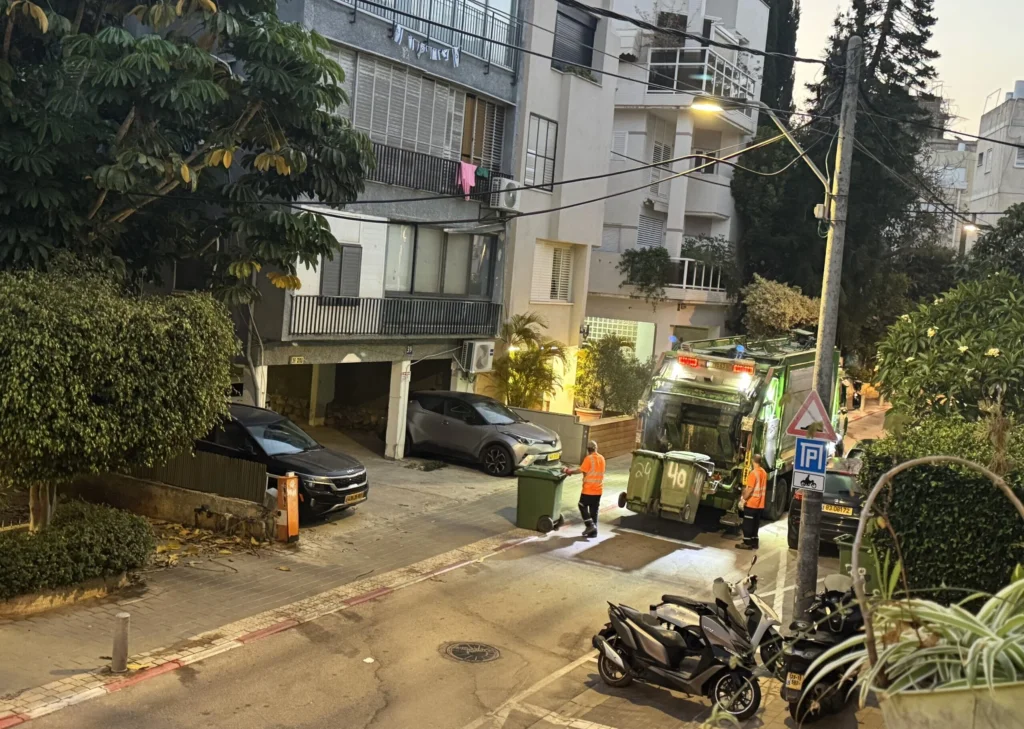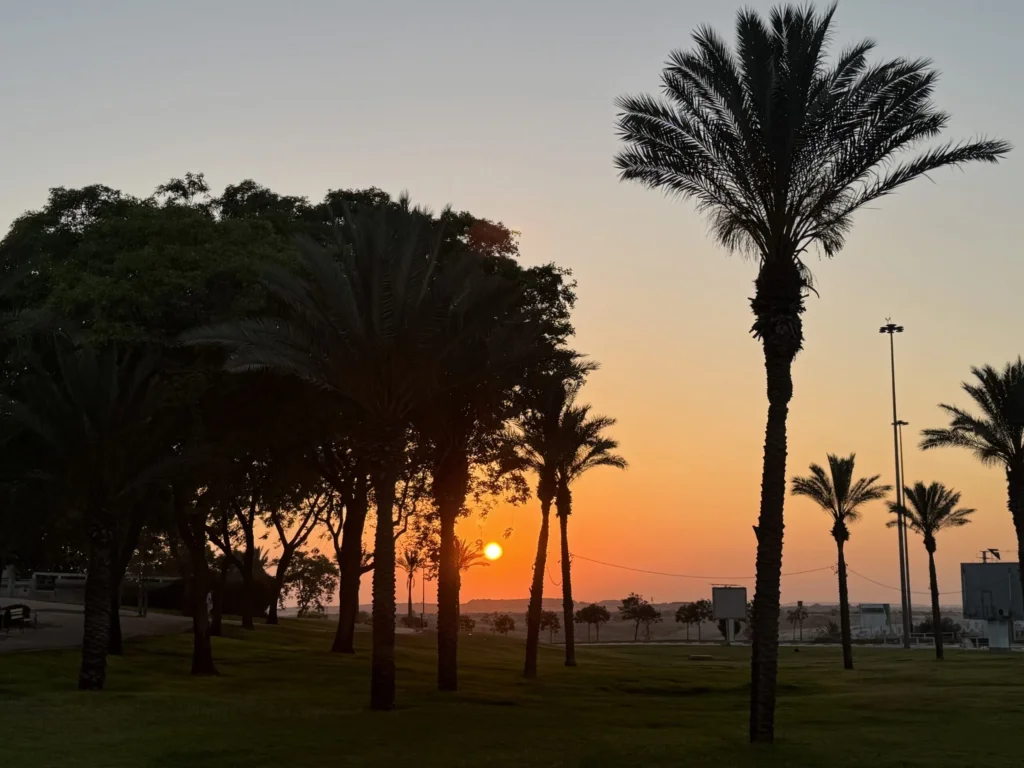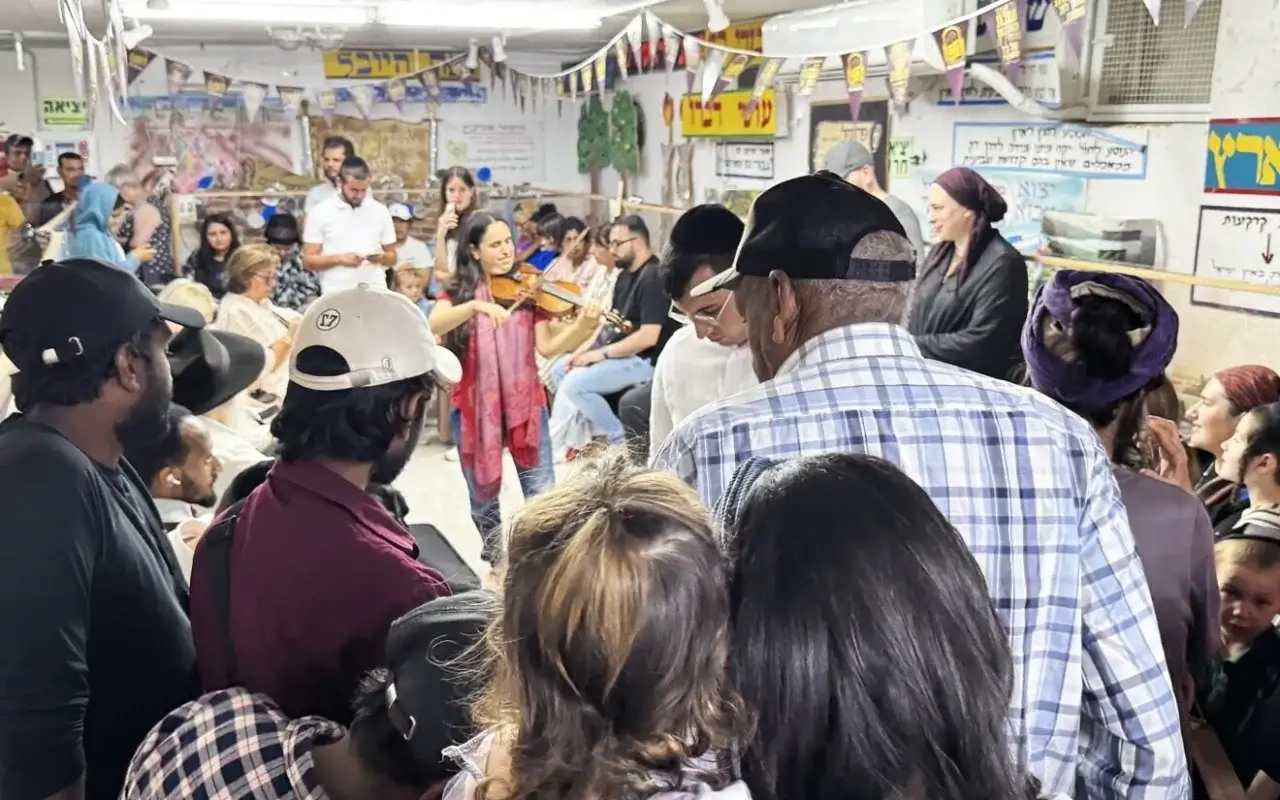It is both mind-blowing and beautiful to watch Israel return to normal following two straight weeks of anxiety, terror and the unknown.
View original article on JNS.org
The kids went back to school on Monday. The adults returned to work. And the pools, gym and tennis courts reopened.
Early next week, summer camps should be in full swing.
Still, the sense of sudden normalcy doesn’t feel normal. It certainly doesn’t for me. I just made aliyah, and as such, experienced war as a new immigrant. I had more at stake this time.
And this war, it was different. I don’t think there has been a conflict in recent memory when friends outside of Israel could follow events so closely in real time. From WhatsApp groups like Jewish Breaking News and Israel Live News, to i24News, coupled with apps of the Israel Defense Forces Home Front Command and the incessant Red Alert one, there is an overabundance of reporting from the Jewish state—and the Mideast as a whole—these past 21 months. Because that’s how long it has been. It started with the Hamas-led terrorist attacks in southern Israel on Oct. 7, 2023, followed by a regional wave of terror and transformation ever since.
In past wars and periods of tension in the Middle East, I was one of those who sat in the United States, glued to the news. Now that I am here for good, I have a new perspective. When friends and colleagues in America reach out and check in, it’s clear that the news sources they follow are not nuanced or always accurate.
When we were greeted on Friday, June 13, at 3 a.m., to a shrill sound on our phones, no one knew at first what was happening. It turns out that the alert was meant to inform Israelis to “sit tight.”
Something, of course, was happening. Israel was bombing Iran, and retaliation was imminent.
As the day unfolded, that “pre-snowstorm in America” feel was in the air. Something was about to happen for sure; it was just a matter of time. The Home Front Command announced no school, no work (except for essential services), no social outings, no simchas. Ben-Gurion International Airport was closed.

By 7:45 a.m., I ventured to the nearest grocery store for essentials for Shabbat. We all knew the azakah, or “warning siren,” could go off any minute. We grabbed the basics—milk, challah rolls, fruit and vegetables, hummus, some snacks—and hustled home, relieved that we could all survive the next few days, if necessary.
Shabbat services were soon canceled countrywide. A popular Tel Aviv Modern Orthodox synagogue sent a message in the WhatsApp group telling people to come by the shul at 4 p.m. to pick up some “take-home cholent, since it is already made.”
Parents of young children who look forward to the weekly camaraderie and kiddush associated with the Children’s Tefillah session arranged to meet at 10:30 a.m. on Shabbat in the local playground, which features a huge bomb shelter seconds away. Bleary-eyed moms and dads, who found themselves in and out of shelters with kids and even with their own parents between 9 p.m. and 5 a.m. Friday night and into Saturday morning couldn’t stop talking about their experiences.
The lucky ones have a mamad, a safe room in their apartment or apartment building. Most Israelis don’t. Instead, they rely on small, dusty bomb shelters serving an entire apartment building, or they go a few blocks to a local community shelter. Some, like in Tel Aviv, are like modern Jewish Community Centers with multiple safe rooms. These often feature electrical outlets, children’s sleep mattresses and air-conditioning, if you are lucky enough to get a coveted spot. They fill quickly. Hundreds come, along with babies, kids of all ages, even pets. They fill to capacity with the overflow waiting it out in the stairwells.
For parents, work is put on the back burner and is optional for most. Some have spouses—doctors, nurses, other caretakers—who staff Israel’s hospitals, which means that one parent is flying solo with few activities available. Caretakers often can’t make it to work due to erratic public transportation or because they have their own kids or parents to manage. I have learned that in some industries, parents of children up to age 15 or parents of children with disabilities up to age 21 cannot be called in to work; there are similar rules protecting those whose spouses are on IDF reserve duty.

Waze, unsurprisingly an Israeli innovation, just announced a new feature where the user can easily locate the nearest bomb shelter while out driving or with kids at a playground. It offers some peace of mind to veteran Israelis and new immigrants alike.
On several playgrounds, I saw kids playing a game called azakah and mamad. One child screams out azakah—“bomb alert.” The others scream mamad—“bomb shelter.” They run, pointedly, in search of safety. They must know what psychologists have known for decades: Play is an effective medium for processing trauma. Maybe so, but I’d prefer to see these kids on a swing set.
It is both mind-blowing and beautiful to watch Israel return to normal following two straight weeks of anxiety, terror and the unknown. Yes, we still always remember the hostages in Gaza, the soldiers who have given their lives in battle, and sadly, those who died in the Iranian missile attacks. But by 7 a.m., there were 20 people in front of me at the Maccabi Health Clinic waiting for blood and other lab tests. The local tennis center was open for business. All nine courts were in use by 9 a.m.
Just two days ago, a couple with two young children were considering a temporary move to the States via Jordan so they could do their jobs, so that their children could get a good night’s sleep and maybe even attend a local summer camp.
Now, that’s off the table. Ben-Gurion International Airport is open. Some foreigners are trying to get out, and Israelis are trying to get in. Summer programs that were recently canceled will be jump-started next week, including the Birthright Israel program. It’s too late to bring the Maccabiah Games back, but athletes are sure to be here in even greater numbers next summer.
It may just be a wonderful summer, after all. Israelis are hopeful, but realistic. Everything can change in just about the time it takes to get to the nearest bomb shelter.


